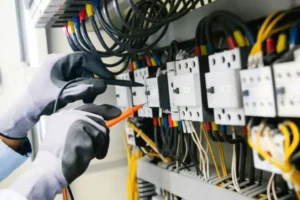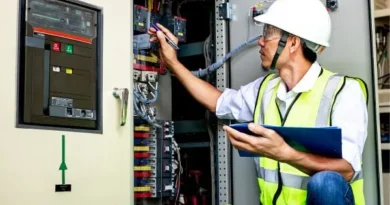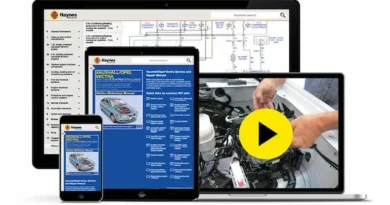Electrical engineer online courses: How to apply for free
See how to apply for electrical engineer online courses. Flexible and accessible for all.
Anúncios
These free online electrical engineering courses provide comprehensive, high-quality content and practical skills for all levels.
Ready to take the next step in your electrical engineering career? Keep reading to find out how to apply!
Step-by-Step Guide to Apply for Electrical Engineer Online Courses
Are you looking for a flexible and affordable way to advance your knowledge in electrical engineering?
Electrical engineer online courses offer a convenient option to study at your own pace, often for free.
These courses are available for anyone, regardless of their prior experience, and provide high-quality content designed to help you develop the technical skills necessary to thrive in the field.
Curious about how to get started? Keep reading to learn how to apply and begin learning for free!

The process of applying for free electrical engineer online courses is straightforward and accessible to everyone.
Many reputable platforms offer a range of courses in this field, and the enrollment process is simple.
Below is a step-by-step guide to help you get started:
Step 1: Choose a Learning Platform
The first step in applying for a free electrical engineer online course is selecting a platform that offers high-quality courses.
Some of the most popular and trustworthy platforms include:
- Coursera: Offers free courses from leading universities and institutions, with an option to pay for certification.
- edX: Known for providing access to free courses from top universities like MIT, Harvard, and Delft University of Technology.
- Alison: Provides free online courses with optional certificates available for a low fee.
- FutureLearn: Offers a wide selection of free courses with the option to upgrade for certifications and extended access.
These platforms allow you to choose from a wide variety of electrical engineering courses, ranging from beginner to advanced levels.
Step 2: Search for Electrical Engineer Online Courses
Once you’ve chosen a platform, it’s time to start searching for electrical engineering courses.
Each platform has a search function that allows you to find courses by topic, skill level, or specific keywords like:
- “Electrical engineering fundamentals”
- “Circuit analysis”
- “Power systems”
- “Control systems”
- “Electronics”
You can usually filter results by course type (free or paid), level (beginner, intermediate, or advanced), and the duration of the course.
As you browse through the courses, be sure to review the syllabus, instructor information, and user reviews to get a better understanding of what the course offers.
Step 3: Review Course Requirements
Before enrolling in any course, it’s important to check the prerequisites.
Most free electrical engineer online courses are designed for beginners and don’t require any previous experience in the field.
However, intermediate and advanced courses might require some background knowledge in physics, mathematics, or basic electronics.
Platforms like Coursera and edX often include a detailed course description, which will outline the specific requirements and give you a good idea of whether the course is the right fit for your current knowledge level.
Step 4: Create a Free Account
To enroll in a course, you’ll need to create an account on the platform. Fortunately, creating an account is free and quick.
Platforms like Coursera and edX allow you to sign up using an email address, Google account, or Facebook account.
Once your account is set up, you’ll have access to the platform’s dashboard where you can track your courses, monitor your progress, and engage with other learners in the community.
Step 5: Enroll in the Course
Once you’ve selected the course that fits your needs, the next step is to enroll.
Most courses offer free access to their core materials, which means you won’t need to pay to start learning.
However, some courses offer additional paid features, such as graded assignments or certificates of completion. These are optional, and you can still gain valuable knowledge by taking the free version.
To enroll, simply click on the “Enroll” or “Join for Free” button.
After enrolling, the course will appear on your dashboard, and you can begin accessing the lectures and materials right away.
Step 6: Access the Course Materials
Once enrolled, you’ll have full access to the course content. Here’s what you can typically expect from a free electrical engineer online course:
- Video lectures: Pre-recorded lectures from industry experts and university professors, often divided into modules or weekly lessons.
- Reading materials: Downloadable textbooks, articles, or study guides that complement the video lessons.
- Quizzes and assignments: These tools help you assess your knowledge and ensure that you’re retaining the key concepts.
- Discussion forums: Engage with instructors and other students to ask questions, share insights, and collaborate on projects.
Most courses are self-paced, meaning you can access and complete the materials at any time.
This allows you to study on your own schedule, making it easy to balance learning with work, family, or other commitments.
What to Expect from Electrical Engineer Online Courses
Online courses in electrical engineering offer a comprehensive education in both foundational and advanced topics.
Whether you’re new to the field or looking to enhance your existing knowledge, these courses cover essential subjects in a structured format.
Here’s an overview of what you can expect:
Core Topics Covered
Most electrical engineering courses start with fundamental topics and gradually introduce more complex subjects. Here are some of the core areas you can expect to explore:
- Circuit Analysis: Understand basic electrical circuits, Ohm’s law, Kirchhoff’s laws, and methods for analyzing circuit behavior.
- Electronics: Learn about the function and application of key electronic components, including diodes, transistors, and operational amplifiers.
- Power Systems: Study how electrical power is generated, transmitted, and distributed, with a focus on grid stability and energy efficiency.
- Control Systems: Explore how feedback control is used to regulate and stabilize electrical systems, an essential aspect of modern engineering.
- Signal Processing: Understand how electrical signals are transmitted, processed, and interpreted in communication systems.
Whether you are a beginner or more experienced, these courses are designed to provide a strong foundation in electrical engineering and build up to advanced topics.
Self-Paced Learning
One of the greatest advantages of electrical engineer online courses is their flexibility.
Most online platforms offer self-paced courses, allowing you to study at your own speed.
You can set your own schedule and complete modules when it’s convenient for you, making these courses perfect for working professionals or those with busy lifestyles.
This flexibility also gives you the opportunity to revisit lessons, pause videos, and review materials as often as necessary to fully grasp the concepts.
Practical Projects and Simulations
Many online electrical engineering courses include practical components designed to reinforce theoretical knowledge.
Some of the practical tools and experiences you can expect include:
- Simulation software: Programs like MATLAB, LTspice, and Multisim are often integrated into courses to help you simulate electrical circuits and systems.
- Hands-on projects: Courses may ask you to apply your knowledge by designing and testing circuits, analyzing power systems, or solving real-world engineering problems.
- Interactive assessments: Many courses offer quizzes, assignments, and projects that test your understanding of the material and give you the opportunity to apply what you’ve learned.
These hands-on experiences are essential for developing the practical skills that electrical engineers use in their daily work.
Certification and Career Advancement
Many platforms offer certificates of completion for those who want formal recognition of their learning.
While the core course materials are free, certificates are typically offered for an additional fee.
Earning a certificate can be valuable for career development, as it provides proof of your skills and dedication to professional growth.
If you are looking to enhance your resume or apply for jobs in the field, a verified certificate from platforms like Coursera or edX can give you a competitive edge.
Additionally, many courses offer career support, such as job placement assistance, resume reviews, and interview tips, to help you make the most of your learning.
Where to Find Free Electrical Engineer Online Courses
Several reputable online platforms offer free electrical engineering courses.
Below are the top platforms where you can find high-quality courses in this field:
1. Coursera
Coursera partners with top universities and organizations to offer a wide range of online courses in electrical engineering.
Courses like the Fundamentals of Electrical Engineering from the University of Colorado Boulder and the Introduction to Electronics from the Georgia Institute of Technology are popular choices.
While course materials are free, you can pay for a certificate if you want formal recognition.
2. edX
edX offers free access to electrical engineering courses from prestigious institutions like MIT, Harvard, and Delft University of Technology.
Courses such as Circuits and Electronics by MIT and Power Systems Analysis by Delft are available for free, with the option to pay for certification upon completion.
3. Alison
Alison is a platform known for offering free professional development courses, including electrical engineering.
One of its most popular courses is the Introduction to Electrical Engineering, which covers fundamental topics in the field. Certificates are available at a low cost.
4. FutureLearn
FutureLearn offers a variety of free online courses from top universities and organizations.
Electrical engineering courses like Electrical Engineering: Sensing, Powering, and Controlling Robots by The Open University are available for free.
Paid upgrades allow for certification and extended course access.
Our Opinion
Applying for electrical engineer online courses is an excellent way to build new skills and advance your career in a flexible, affordable manner.
With access to high-quality education from top-tier institutions, you can learn at your own pace and gain valuable knowledge in electrical engineering.
Whether you’re just starting out or looking to expand your expertise, these courses offer a wealth of resources to help you succeed.
Start today by enrolling in one of the many free courses available and take the first step toward mastering electrical engineering!


